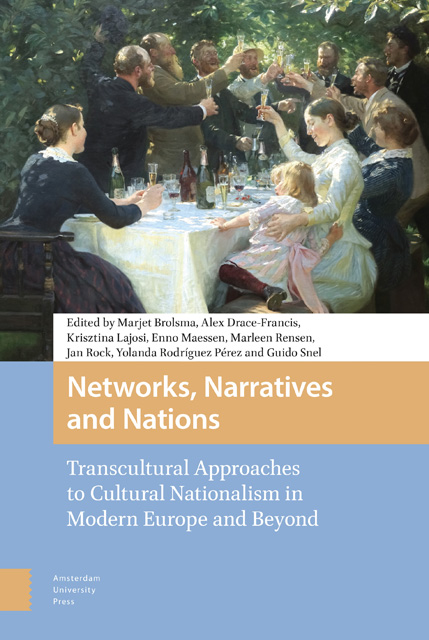 Networks, Narratives and Nations
Networks, Narratives and Nations Book contents
26 - Considerations of an Imagined Land
Published online by Cambridge University Press: 16 November 2022
Summary
Abstract
The image of the land of Albania results from the history of an occupied country and its subjugated people. The legendary hero of liberation, Skanderbeg, and his counterpart, the ferocious tyrant Ali Pasha, were immortalized in Lord Byron's poetry. That fictitious mental image, dominating western European travel writing, is deconstructed by imagological analysis.
Keywords imagology; national hero; Orientalism; travel writing; Albania
Imagology is the art of deconstructing a fictitious reality. This method has been applied in a recently published book by Olimpia Gargano, Au pays des Skipetares: L’Albanie dans l’imaginaire européen des XVIe–XIXe siecles (In the land of the Skipetars: Albania in the European imagination of the 16th–19th centuries), a study of the origin and the development of the image of the Albanians and their country. Nearly all European peoples followed the same steps in the process of nation-building, as documented in Monika Flake's collection of analytical articles in Mythen der Nationen (Myths of nations, 1998). But this collection has no article on Albania, the land of the “Skipetars” (as the Abanians call themselves). The survey Imagology (2007), edited by Beller and Leerssen, is also missing a chapter on Albania, mentioning it only in the comprehensive article on the “Balkans.”
In the first part of her book, entitled “Mots” (Words), Gargano presents Skanderbeg, the heroic leader of the Skipetars in their struggle against the Ottoman occupation in the fifteenth century and the late discovery of Albania by English and French voyagers in the nineteenth century. The second part, “Espaces”, describes the ill-famed despot Ali Pasha and the literary characterization of the Albanians. The third part, “Images”, treats the pictorial representation of the Albanian landscape and the people's appearance, customs and nuptial rites. So Gargano treats the historical, linguistic, literary, geographic and pictorial elements of Albanian life from several perspectives. Of the aspects treated by Gargano, I will focus on the fictional construction of the image of the country and its inhabitants. The case of Albania shows that the imagined land of the Skipetars needed four ingredients: a legendary hero, an Oriental despot, Romantic poetry and travellers in search of paradise.
- Type
- Chapter
- Information
- Networks, Narratives and NationsTranscultural Approaches to Cultural Nationalism in Modern Europe and Beyond, pp. 313 - 324Publisher: Amsterdam University PressPrint publication year: 2022


